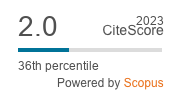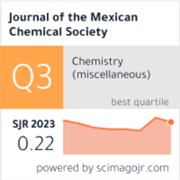Application of Electrochemical Technology for Water Treatment of Brazilian Industry Effluents
DOI:
https://doi.org/10.29356/jmcs.v58i3.134Keywords:
electrochemical technologies, real effluents, Brazilian industriesAbstract
Electrochemical technologies are a promising alternative for the treatment of wastewaters containing organic pollutants. The main advantages of these processes include environmental compatibility, versatility, energy efficiency, safety, selectivity, amenability to automation and cost effectiveness. However, the effectiveness of the electrochemical approaches depends strongly on electrode materials and cell parameters (mass transport, current density, water composition, etc.). Then, the use of high performance anodic materials can achieve high efficiency and lower the operating cost. Therefore, several research groups are recently studying the applicability of the electrochemical technologies for treating real domestic and industrial effluents, with the aim of that a diversification of techniques must be sought, adapting the treatment to each situation, as much as possible. In this context, this paper presents an overview of the application of electrochemical technologies to treat industrial effluents in the northeastern region of Brazil, emphasizing the use of direct and indirect electrochemical oxidation processes as an alternative to pollution abatement of effluents generated by textile and petrochemical industries.Downloads
Downloads
Published
Issue
Section
License
Authors who publish with this journal agree to the following terms:
- Authors retain copyright and grant the journal right of first publication with the work simultaneously licensed under a Creative Commons Attribution License that allows others to share the work with an acknowledgement of the work's authorship and initial publication in this journal.
- Authors are able to enter into separate, additional contractual arrangements for the non-exclusive distribution of the journal's published version of the work (e.g., post it to an institutional repository or publish it in a book), with an acknowledgement of its initial publication in this journal.









